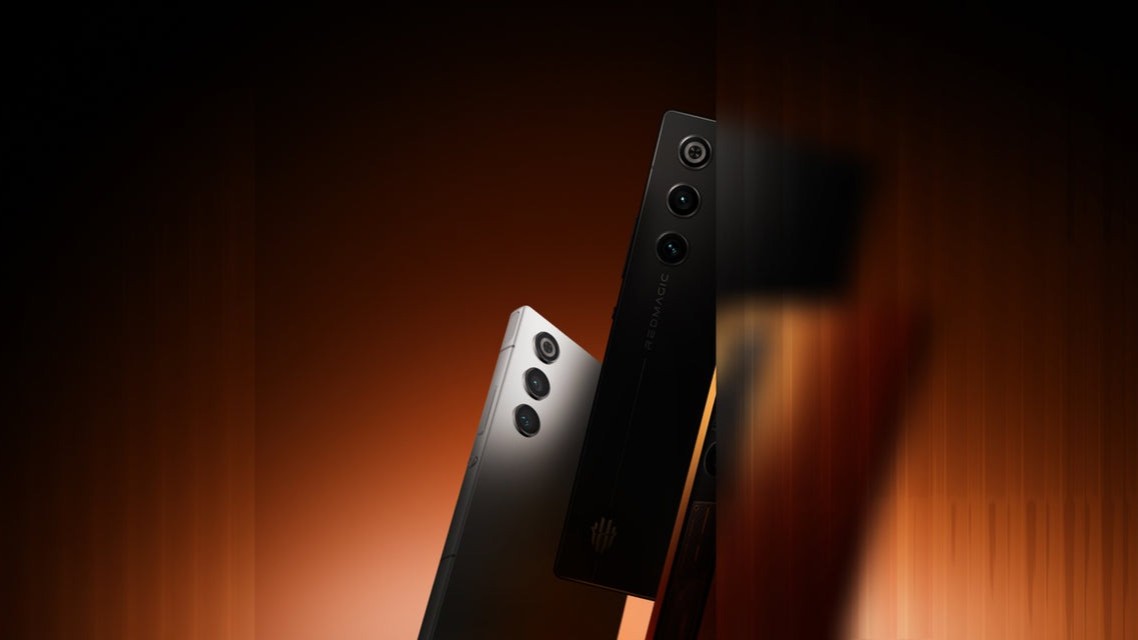OnePlus Nord hands-on: Flagship-class hardware at a mid-range price
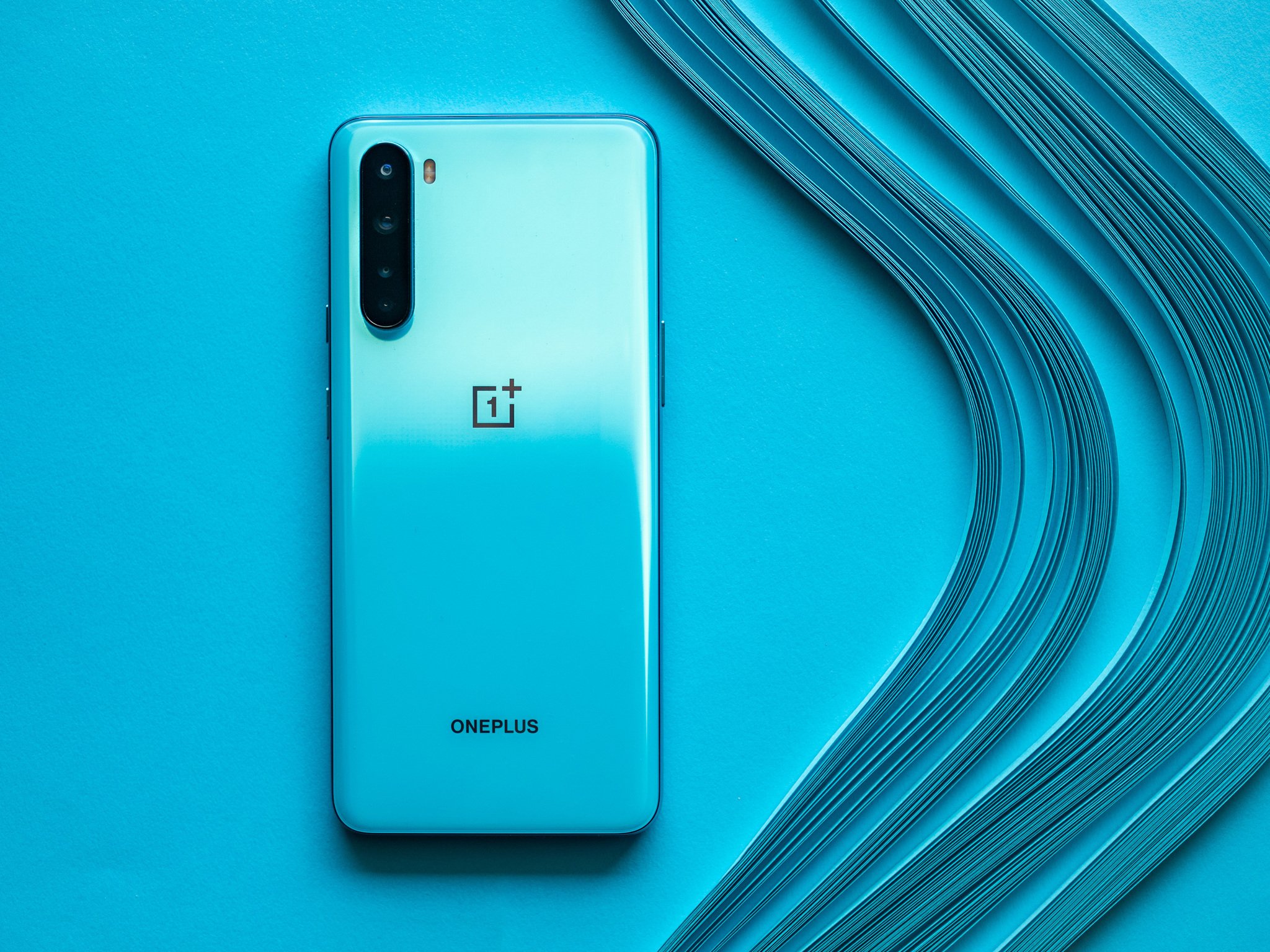
OnePlus' efforts over the last 15 months have been aimed at the premium segment, with the Chinese manufacturer introducing devices with attractive designs and exciting features like high refresh rate displays as the company set its sights on Samsung and Google. The result is that the base variant of the OnePlus 8 starts off at $699, with the OnePlus 8 Pro retailing for $899.
OnePlus doesn't really have an option for under $500 anymore, and considering the company's reticence to put last-gen phones on sale once the latest models are announced, you don't have a lot of choice if you're interested in picking up a OnePlus phone in 2020 other than the OnePlus 8 or 8 Pro.
That's why the introduction of the OnePlus Nord comes at such a pivotal time for OnePlus. A lot of the company's success over the last six years was because of its dominance in the sub-$500 category, and with the Nord, OnePlus is once again catering to that segment.
The Nord boasts a lot of firsts: it is the first OnePlus phone to offer dual cameras at the front, with a 32MP primary lens joined by an 8MP wide-angle module. It is also the first OnePlus phone to be powered by a chipset that isn't in the Snapdragon 8xx series. That said, the Snapdragon 765G has a lot to offer, and you're getting 5G connectivity here as well.
Thankfully, OnePlus didn't make too many compromises with the Nord. You still get an AMOLED display with 90Hz refresh rate, a quad-camera system at the back with a 48MP primary lens, and a 4115mAh battery with 30W wired charging. Combine the robust hardware with the fact that the Nord starts off for under $400, and you get one of the best values in this category in 2020.
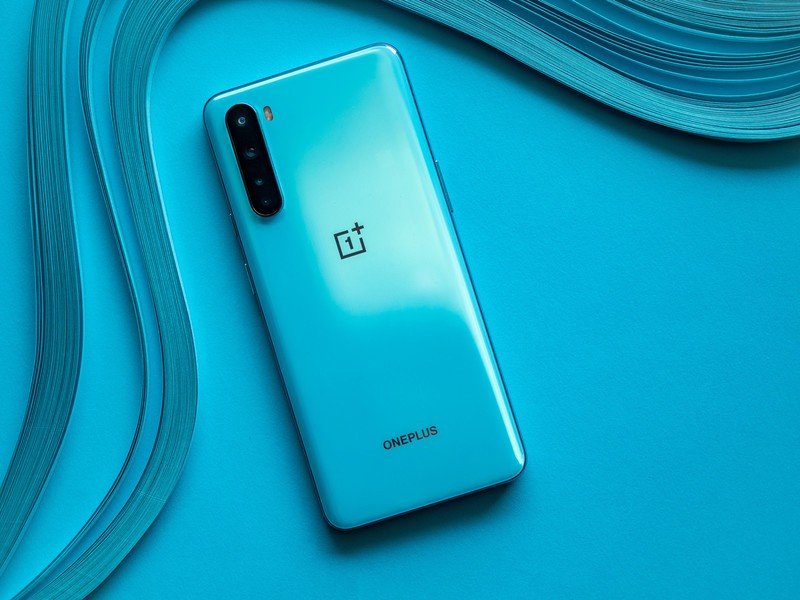
The first feeling you get when you use the Nord is one of familiarity. While the phone is aimed at the mid-range segment and costs several hundred dollars less than the OnePlus 8, the design language itself is nearly identical to OnePlus' flagships. You get the same flowing curves at the back, same rounded edges, and the same in-hand feel. Oh, and you get Gorilla Glass 5 for the front and back panes of glass.
The Nord has a plastic mid-frame, but the in-hand feel is outstanding.
What's different, though, is the use of materials. The Nord has a plastic mid-frame with metal buttons, and the glass at the back has a glossy finish, which feels very different to the matte finish on the OnePlus 8 and 8 Pro. The Nord is marginally shorter and wider than the OnePlus 8, and that makes it easier to hold and use. The in-hand feel is particularly great because of the size and the flat 6.44-inch screen, and while it isn't compact, it is much better than the regular OnePlus 8.
Be an expert in 5 minutes
Get the latest news from Android Central, your trusted companion in the world of Android
You'll find the same hardware features, including the alert slider on the right, the volume rocker to the left, and the same speaker grille at the bottom next to the USB-C charging port. You miss out on the secondary speaker, but the main speaker itself is quite decent. The phone is available in two color options: Blue Marble and Gray Onyx. The former has a teal hue that's particularly easy on the eyes, and the latter is a more mainstream option with a dark grey color scheme. The same colors extend to the mid-frame as well, and the fit and finish here is on par with the OnePlus 8 series.
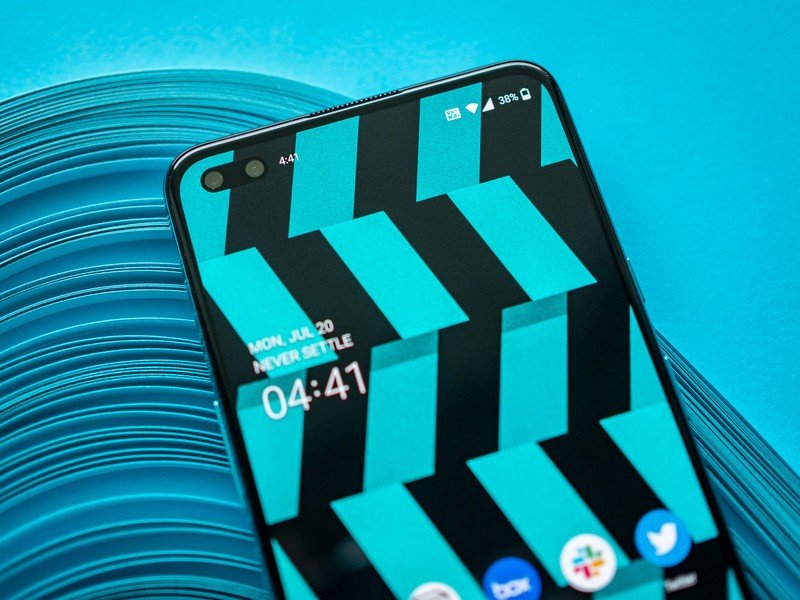
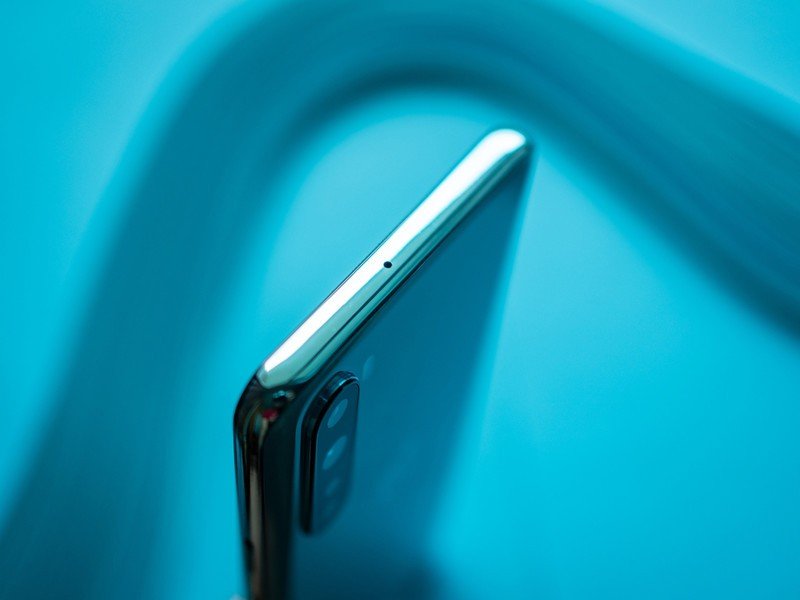
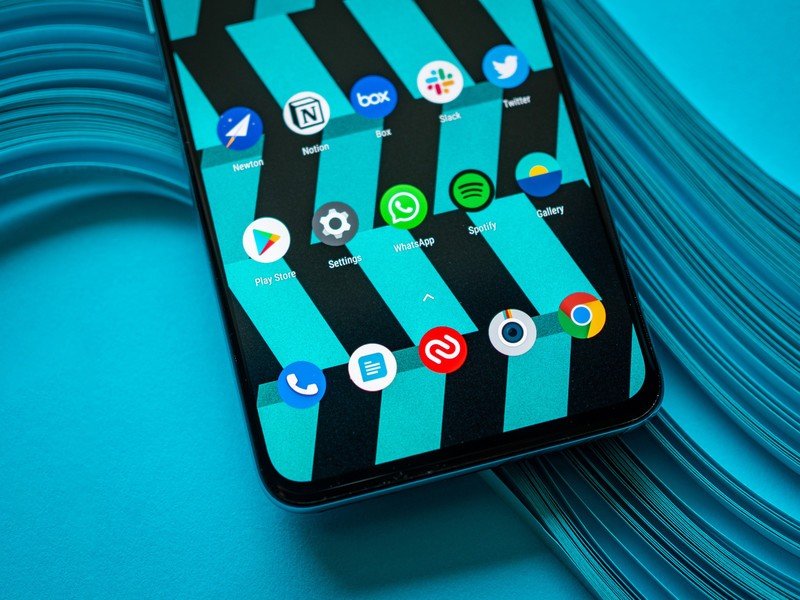
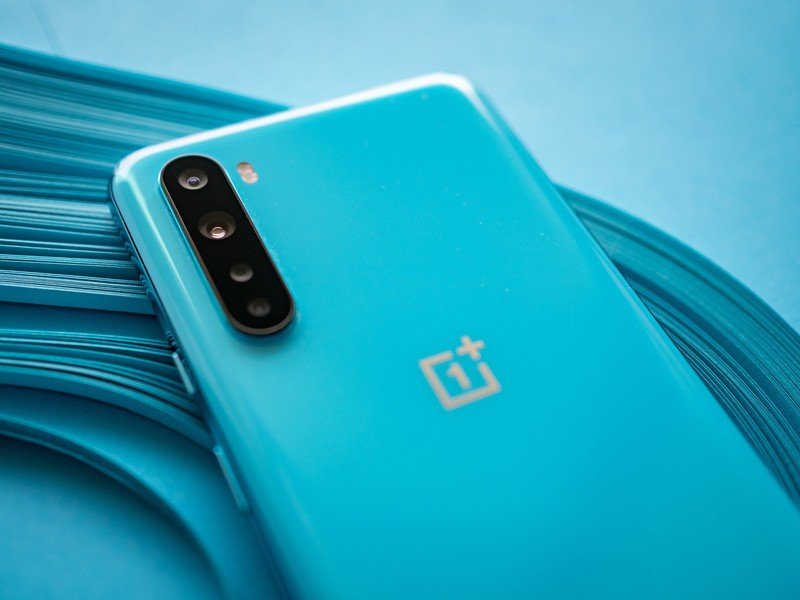
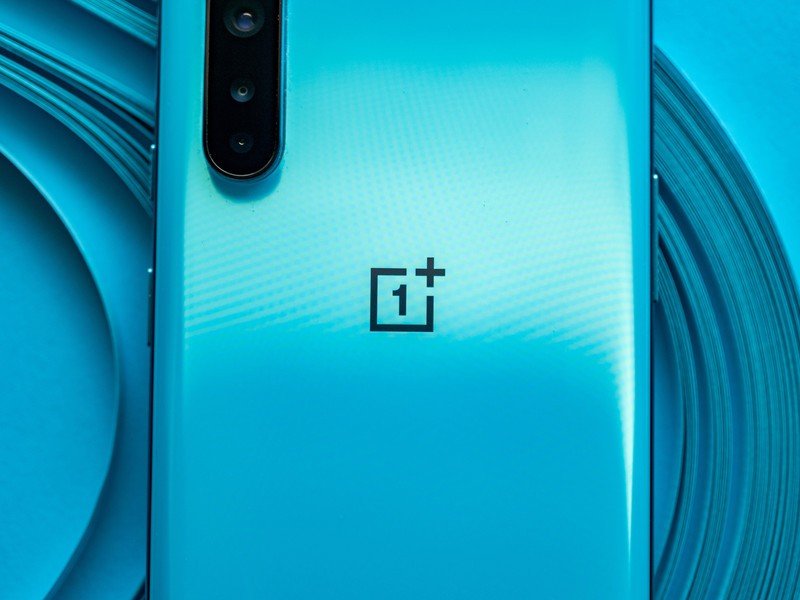
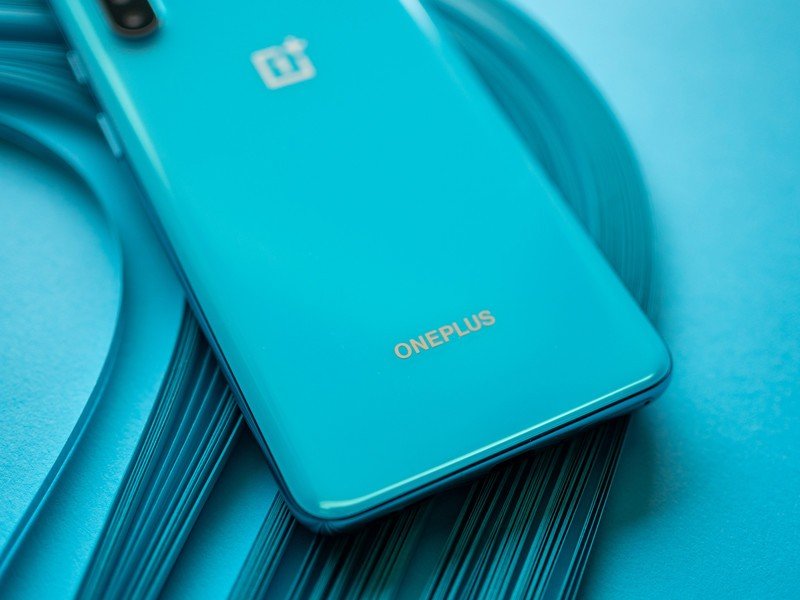
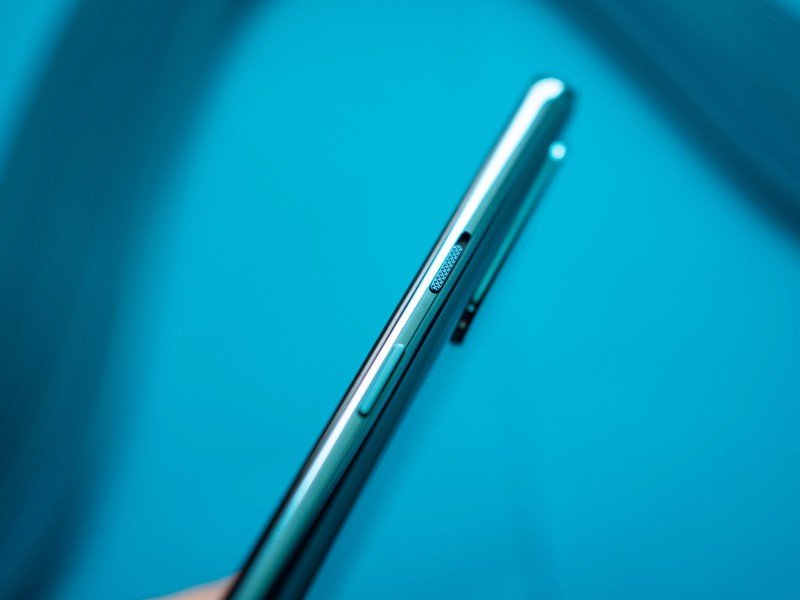
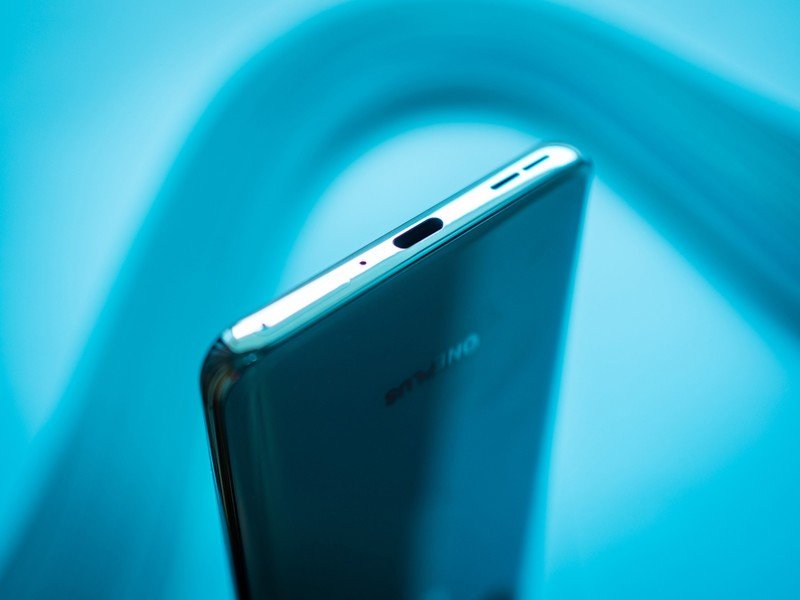

OnePlus is aiming for clear differentiation between the Nord and its regular numbered series. To that effect, the Nord has its own visual identity, with the packaging featuring a lot of blue accents instead of the usual OnePlus red. The blue theme extends to the phone as well (provided you get the Blue Marble version), and the company is also selling a first-party case decked out in blue. That said, the charging cable is still red, and the wall plug itself is white; I would have liked to see OnePlus offer a blue cable in the box to cement that distinction.

A standout feature on the OnePlus Nord is the 90Hz display. The phone features a 6.44-inch FHD+ (2400 x 1080) AMOLED display with a 90Hz refresh rate, and that makes a huge difference in day-to-day use. With both the OnePlus 8 and 8 Pro offering curved panels, it's good to see a OnePlus phone in 2020 with a flat panel — if you're not keen on curved screens, the Nord is a great alternative. OnePlus had to make compromises in a few areas to bring the Nord down to under $500, but the display isn't one of them. The 90Hz panel is just as fluid as the OnePlus 8, and with OxygenOS 10.5 out of the box, you're getting the same software experience as OnePlus' flagships.
The Snapdragon 765G is just as powerful as the Snapdragon 865 in day-to-day use.
The Nord is the first OnePlus phone to feature a chipset that's not in the Snapdragon 8xx series, with the phone powered by a Snapdragon 765G instead. Going with the Snapdragon 765G is a smart move, because for most day-to-day tasks, you won't notice a difference.
OnePlus optimized OxygenOS to take full advantage of the 90Hz panel, and the result is that interactions on the Nord are just as fluid as the OnePlus 8. And like the flagships, the Nord will receive two platform updates and three years of security updates.
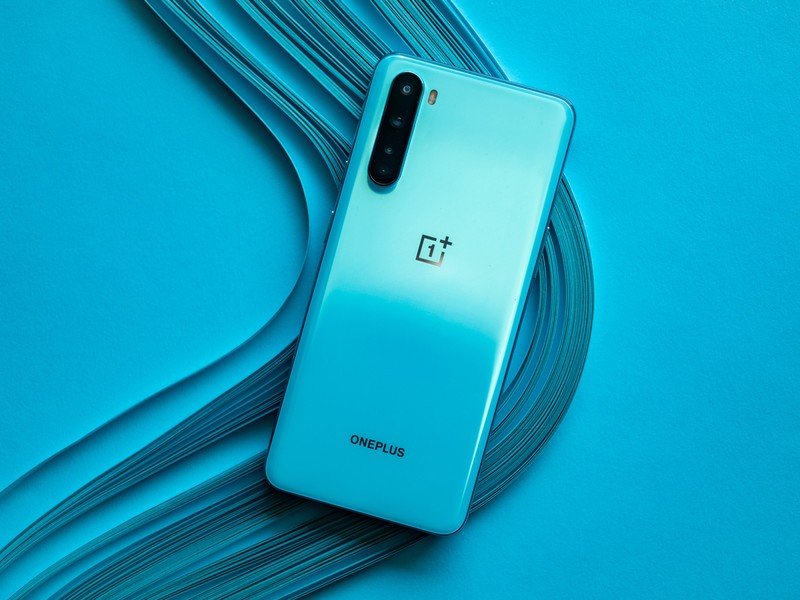
OnePlus is selling the Nord in three variants: a base variant with 6GB of LPDDR4X RAM and 64GB of UFS 2.1 storage that's exclusive to India, an option with 8GB of RAM and 128GB of storage, and a model with 12GB of RAM and 256GB of storage. In most markets, you'll be able to get the 8GB/128GB model for under $500, making it a fantastic value. Here's the breakdown of how much the Nord costs around the world:
- OnePlus Nord 6GB/64GB (Grey Onyx): ₹24,999 (exclusive to India)
- OnePlus Nord 8GB/128GB (Blue Marble, Grey Onyx): £379, €399, ₹27,999
- OnePlus Nord 12GB/256GB (Blue Marble, Grey Onyx): £469, €499, ₹29,999
There are a few points that stand out here. There is a £90 ($114) and €100 ($114) differential between the 8GB/128GB option and the 12GB/256GB variant in other markets, but in India, that's down to just ₹2,000 ($27). What that means is that the 12GB/256GB model is a much better choice in India versus other markets considering the minor difference in cost.
The Nord offers excellent value for money, and it starts off at just ₹24,999 ($335) in India.
Then there's the fact that the Nord costs significantly less in India when compared to the UK and other markets. The 8GB /128GB model is £379 in the UK, and that comes out to $480. The same phone costs €399 ($450) in other European countries, but in India it is just ₹27,999, the equivalent of $375.
That's $75 less than what it costs in Europe and $105 less than the UK, and it gets even better for the 12GB/256GB model. That particular model costs £469 ($595) and €499 ($570) in the UK and Europe respectively, but in India, it is ₹29,999 ($400). That's nearly $200 less than what the Nord costs in the UK and $170 less than other European countries, and the 12GB option is $50 less than the 8GB model in Europe. OnePlus is very aggressive when it comes to the Indian market, and with the Nord, it's taking things to a new level.
The 8GB and 12GB models will go on sale starting August 4 in all markets, but the 6GB/64GB option won't be available until early September in India. That variant is also limited to Grey Onyx, so if you're interested in the entry-level model of the Nord, know that you'll have to wait a few more weeks.
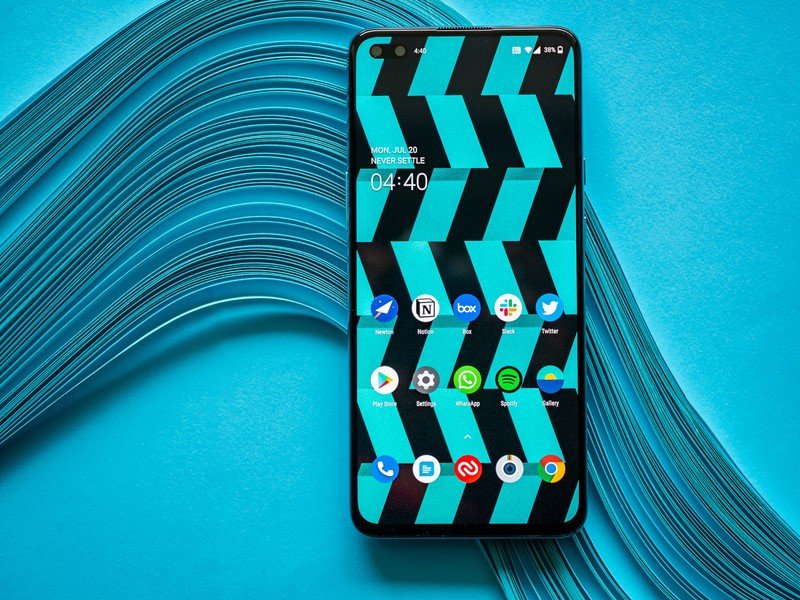
Continuing with the hardware, you'll find the same in-display sensor as the OnePlus 8, and the Nord has Wi-Fi ac, Bluetooth 5.1, NFC, AptX HD, AAC, and LDAC codecs, and 5G connectivity. The Indian variant has limited LTE and 5G bands, and the European model has 5G over 1, 3, 7, 28, and 78 bands. There's no IP rating, but OnePlus says it tested the Nord under 30cm of water for 30 seconds. That doesn't mean you can take it to the pool, but the phone should withstand the occasional splash of water without any issues.
Coming to the battery side of things, the Nord has a 4115mAh battery with Warp Charge 30T — the same as the OnePlus 8. The phone goes from zero to 70% in just 30 minutes, and while I haven't used the device enough to gauge the battery life, it should be in line with the OnePlus 8 in this regard.

The Nord has six cameras in total: a quad-camera system at the back and dual lenses up front. At the back, you'll find a 48MP (Sony IMX586) primary sensor that's joined by an 8MP wide-angle lens, 2MP macro module, and 5MP portrait lens. Up front, there's a 32MP primary camera along with an 8MP wide-angle lens with a 105-degree field-of-view. There's also optical image stabilization for the 48MP lens, and OnePlus' dedicated Nightscape mode is available on the 48MP and the wide-angle lenses.
With six lenses in total, the Nord has a versatile camera system.
The camera lenses at the back are housed in an island that's similar to the OnePlus 8, but they're located to the left and not at the center. OnePlus says it's still figuring out the best location for the camera modules and that it switched the positioning to the left to give the phone a more "streamlined" look.
You'll have to wait for the full review to find out how the cameras fare in real-world conditions, but the fact that the Nord has the same 48MP primary sensor as the OnePlus 8 is a positive sign. The addition of a wide-angle lens at the front is particularly interesting, as it makes the Nord that much more versatile when taking selfies.
The Nord can shoot 4K video at 30fps, 1080p at 60fps, and slow-mo videos at up to 1080p at 240fps. There's no 4K at 60fps here even though the phone is using the same 48MP camera as the OnePlus 8, and it's clear OnePlus left out that particular feature as a way to differentiate its flagship. Interestingly, the front 32MP camera can shoot 4K video at 60fps.
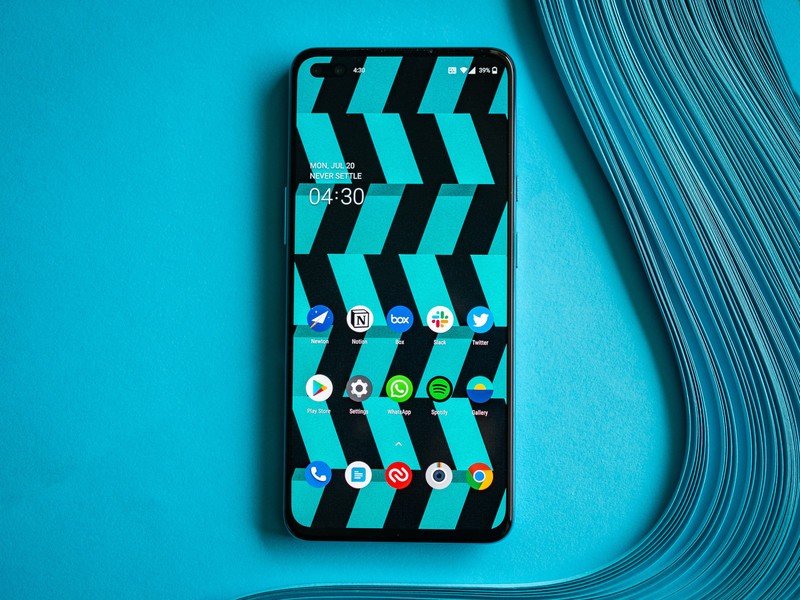
With the Nord, OnePlus is distilling the essence of its flagships into a much more attractive price point. The phone delivers a premium design, versatile cameras, 90Hz AMOLED panel, reliable hardware, 30W wired charging, and the same great OxygenOS software features that you're used to on the OnePlus 8 and 8 Pro.
With the Nord, OnePlus is making the best features from its flagships that much more accessible.
The fact that you're getting all those features for under $400 makes the Nord a particularly great option if you're looking for a mid-range option in 2020. You're not missing out on any of the standout features, and that makes the Nord one of the best devices in this category.
OnePlus will start selling the Nord in 31 countries around the world from August 4, but the device isn't coming to the U.S. That's a real shame considering the value on offer here, and for what it's worth, upcoming models in the Nord series will debut in the U.S. For now though, the device is aimed at European markets and India.
The OnePlus Nord starts off at £379 ($480) in European markets, and the phone is that much more affordable in India, retailing at just ₹24,999 ($375). There really isn't a whole lot missing here when you look at the features on offer, and that makes the Nord a standout option in the mid-range category.

Harish Jonnalagadda is Android Central's Senior Editor overseeing mobile coverage. In his current role, he leads the site's coverage of Chinese phone brands, networking products, and AV gear. He has been testing phones for over a decade, and has extensive experience in mobile hardware and the global semiconductor industry. Contact him on Twitter at @chunkynerd.
